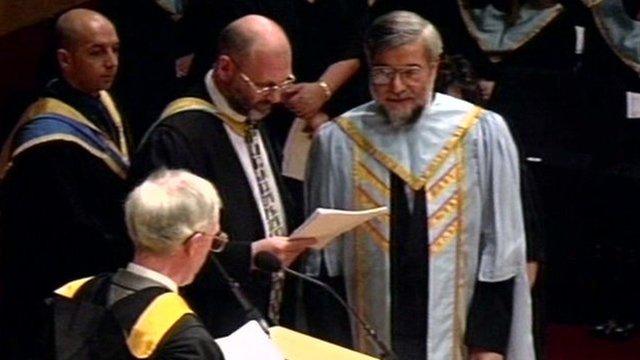From Glasgow student to president of Iran
- Published
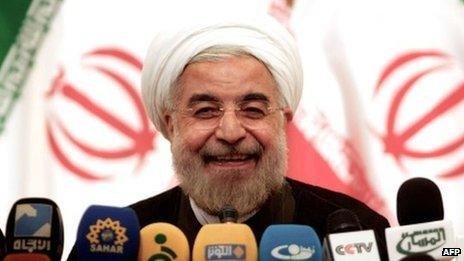
Hassan Rouhani wrote about the flexibility of Islamic law
The cleric, Hassan Rouhani, who is being sworn-in as President of Iran this weekend, used to stroll the streets of the Scottish city, Glasgow, dressed in a smart business suit, his turban removed.
It was the 1990s and Mr Rouhani was a post-graduate student at Glasgow Caledonian University.
He once joked that he should divorce his wife so he'd stand a better chance of getting university accommodation as a single person, rather than requiring family rooms.
At that time, he was also the deputy speaker of the Iranian parliament. But those who knew him say he readily accepted the more lowly status of a student.
"He was on first (name) terms with fellow students," says Prof Hassan Amin, who has now retired from his post teaching law at Glasgow Caledonian University.
"Many times he ate in the students' canteen and sometimes I would take him to the staff restaurant," he says.
"People would come and sit down and I would introduce him… and he would happily engage in a conversation with them."
Political duties
The thesis Mr Rouhani wrote for his PhD is called "The flexibility of Shariah (Islamic Law) with reference to the Iranian experience."
He did the research in Iran while continuing his political duties in Tehran.
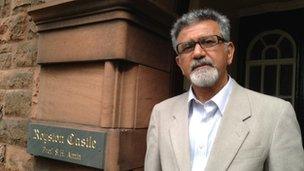
Prof Hassan Amin said Hassan Rouhani was happy to engage in conversation
But he commuted regularly to Glasgow to meet his academic supervisors and discuss the progress he was making.
Dr Mahdi Zahraa, who was one of Mr Rouhani's supervisors, remembers him as "a quiet-spoken, very gentle man", with whom he enjoyed "intelligent and challenging" conversations. His spoken English was good.
"We had very different views on some matters, on others we found that we held similar opinions," he said.
"From our discussions, I ascertained that he had a modern and reformist approach to Shariah law."
Public interest
His thesis can still be brought out and read at the university library.
"There has been quite a bit of press interest (in the thesis), interest from the public in general and quite a bit of interest from the Iranian community," says the library director, Robert Ruthven. "The thesis seems to show he has quite a flexible and perhaps modernising outlook."
In the first line of the abstract, Dr Rouhani writes: "This thesis verifies that no laws in Islam are immutable."
And he goes on to state: "The primary source of the Islamic law (the Quran) is in itself flexible on the basis of the analysis that the Quranic legislation leaves room for flexibility in the evaluation of its injunctions."
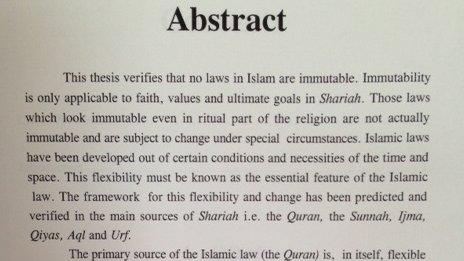
Hassan Rouhani's thesis is still available for researchers at the university library
Experts say this is not something new in recent Iranian thinking, but it does put him in the modernist or pragmatist camp.
And while he's not regarded as a reformist, his victory in the election in June has raised expectations amongst the reformist groups which rallied around him that he will bring change to Iran.
Since the election, Mr Rouhani has spoken of bringing moderation back to Iranian politics and being more transparent about Iran's nuclear programme, so what he called "cruel" sanctions imposed on Iran by the international community, can be lifted.
Gradual change
And it seems his decision to study in Britain back in the 1990s, did to some extent reflect his more liberal outlook.
"He chose Great Britain because he has respect for the legal system here, for the judiciary and also for the legislative system," says Prof Hassan Amin, who is hopeful Mr Rouhani will deliver the promises he made during the election.
"However I would say it would not be an immediate change, it has to be gradual, towards an Iran of sustainable development and good relations with the rest of the world."
Other experts are also cautious about how much Mr Rouhani will want to or be able to free up the system at home and re-engage with the West.
"He is firm in his loyalty to the Islamic republic and to the supreme leader," says Sir Richard Dalton, a former British ambassador to Iran.
"He's best described as a man of the centre with excellent political links to all parts of the political spectrum in Iran.
"His maxim will be more let's go for what works, rather than to respond to a preconceived reform programme."
And yet Sir Richard also believes there could be a breakthrough in the long crisis over Iran's nuclear programme during Mr Rouhani's presidency, if the United States is prepared to offer a progressive easing of the international economic sanctions and if Tehran is also flexible.
"Then I believe…it should be possible to negotiate a permanent, long-term solution to the nuclear question."
- Published20 May 2017
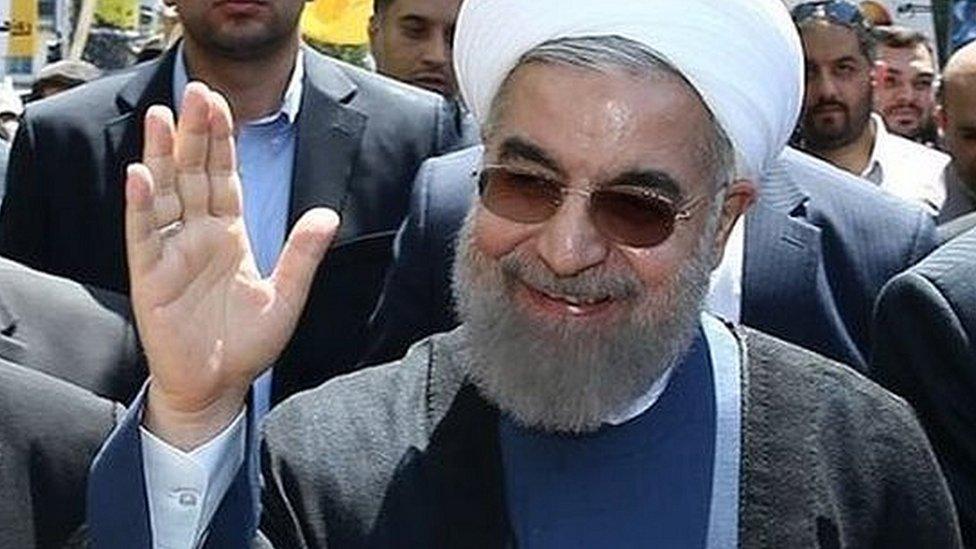
- Published2 August 2013
